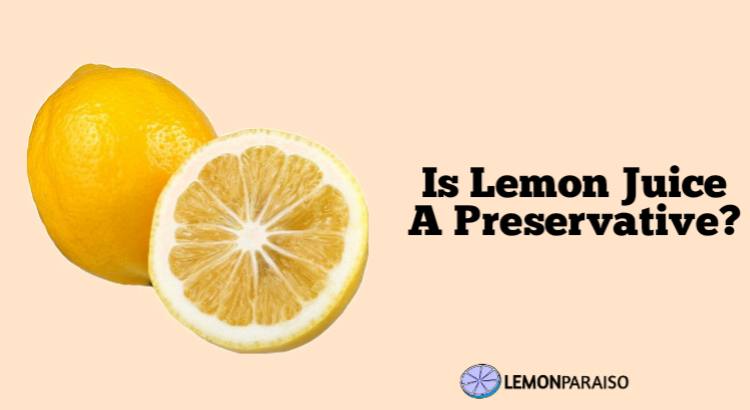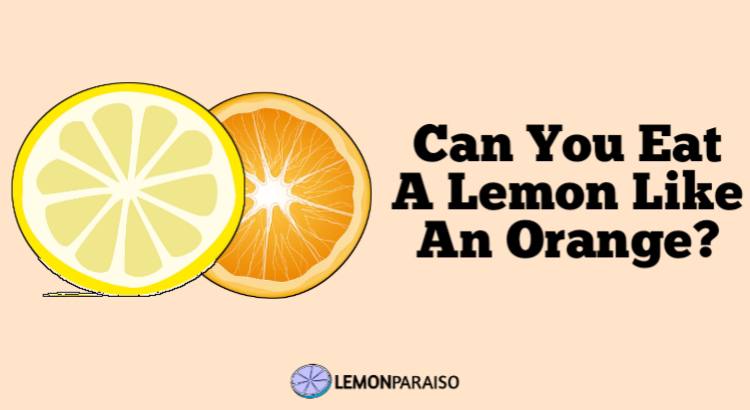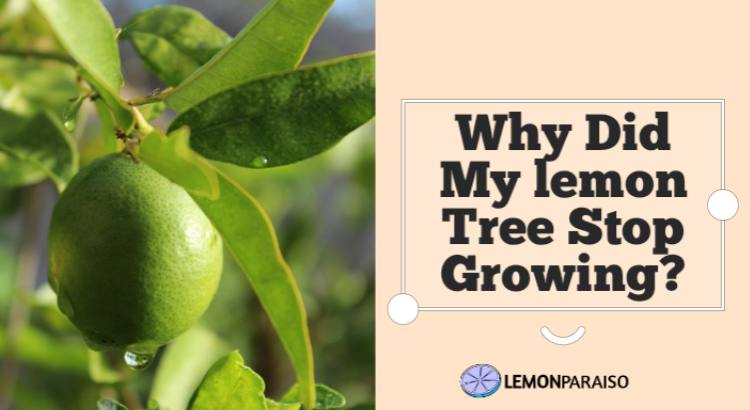Is Lemon Juice A Preservative?

Lemons: they’re not just for lemonade anymore. These vibrant yellow fruits pack a powerful punch when it comes to preserving food. But wait, can lemon juice really be used as a preservative? The answer may surprise you.
In this tantalizing exploration, we delve into the world of lemon juice and its remarkable ability to ward off spoilage. Get ready to discover the tangy secret that could revolutionize your pantry and keep your taste buds dancing. So, grab a lemon and squeeze out the truth: Is lemon juice a preservative? Let’s find out!
Is Lemon Juice A Preservative?
Lemon juice is indeed considered a natural preservative due to its high acidity and rich content of citric acid. As a preservative, lemon juice helps to inhibit the growth of harmful microorganisms, such as bacteria, yeast, and mold, which can cause spoilage in food products.
Its antioxidant properties also play a crucial role in preventing food discoloration and rancidity. Not only is lemon juice an effective preservative, but it is also a healthier alternative to artificial additives commonly found in the food industry.
Its use as a natural preservative has been prevalent in various traditional cuisines around the world, and it remains a popular choice for those seeking chemical-free alternatives. Furthermore, the tangy flavor and refreshing aroma of lemon juice add a pleasant taste to the preserved food items.
How Does Lemon Juice Act As A Preservative?
Lemon juice acts as a preservative through its high acidity, which creates an unfavorable environment for microorganisms to thrive. The citric acid content of lemon juice effectively lowers the pH of the food, making it difficult for bacteria, yeasts, and molds to survive and reproduce.
Additionally, lemon juice contains natural antioxidants, such as vitamin C, which combat oxidation and protect the food from spoilage caused by exposure to air. These antioxidants help maintain the color, texture, and overall quality of the preserved food.
Furthermore, the antimicrobial properties of lemon juice contribute to the prevention of foodborne illnesses by inhibiting the growth of harmful pathogens. As a result, lemon juice plays a crucial role in extending the shelf life of various food items.
Can Lemon Juice Be Used As A Natural Preservative?
Yes, lemon juice can be used as a natural preservative due to its high citric acid content and antioxidant properties. The acidity of lemon juice creates an inhospitable environment for the growth of bacteria, mold, and yeast, thereby preventing spoilage and prolonging the shelf life of food.
It is an excellent choice for those seeking a chemical-free alternative to synthetic preservatives, as it is both safe and effective. Additionally, lemon juice can enhance the flavor of preserved food, making it a desirable option for culinary applications.
Some common foods preserved with lemon juice include fruits, vegetables, jams, jellies, and marinades. However, it is essential to note that the effectiveness of lemon juice as a preservative may vary depending on the type of food and the specific preservation method used.
What Foods Can Be Preserved With Lemon Juice?
Lemon juice can be used to preserve a variety of foods, including fruits, vegetables, and condiments. It is commonly used in fruit preservation, as it prevents browning and maintains the vibrant colors of sliced or diced fruits, such as apples, pears, and bananas.
Lemon juice is also utilized in the preparation of pickles, chutneys, and relishes, where it helps to maintain crunchiness and prevent spoilage. Jams, jellies, and marmalades often contain lemon juice as a natural preservative, as it aids in setting the pectin and ensuring a long shelf life.
Additionally, lemon juice can be used in marinades and salad dressings, where it not only preserves the food but also enhances the flavor profile. However, the effectiveness of lemon juice in preserving different types of food may depend on factors such as pH levels, processing methods, and storage conditions.
How Long Does Lemon Juice Preserve Food?
The length of time that lemon juice can preserve food depends on several factors, including the type of food, the concentration of lemon juice used, and the storage conditions. In general, the addition of lemon juice can extend the shelf life of foods by several days to a few weeks.
For instance, fruit slices treated with lemon juice can maintain their freshness for up to a week when stored in an airtight container in the refrigerator. When used in pickling or canning processes, lemon juice can help preserve foods for several months or even years, provided they are stored in a cool, dark place.
In the case of jams and jellies, the use of lemon juice can ensure a shelf life of up to one year when stored in a properly sealed container. It is crucial to note that the effectiveness of lemon juice as a preservative will vary depending on the specific food and preservation method employed.
To achieve optimal preservation results, it is essential to follow proper food safety guidelines and storage recommendations.
Is Lemon Juice A Safe And Effective Preservative?
Lemon juice is a safe and effective natural preservative when used correctly. Its high acidity and citric acid content make it an excellent choice for inhibiting the growth of harmful microorganisms and prolonging the shelf life of various foods.
Additionally, its antioxidant properties help maintain the color, texture, and overall quality of the preserved food. As a natural alternative to synthetic preservatives, lemon juice is free from potentially harmful chemicals and has been utilized in food preservation for centuries.
However, it is important to ensure that the concentration of lemon juice is appropriate for the specific food and preservation method being used. Additionally, proper food safety practices and storage conditions should be followed to ensure the effectiveness of lemon juice as a preservative.
What Are The Benefits Of Using Lemon Juice As A Preservative?
There are several benefits to using lemon juice as a preservative. One significant advantage is that it serves as a natural alternative to artificial preservatives, which may have potential health risks. Lemon juice’s high acidity and citric acid content effectively inhibit microbial growth, extending the shelf life of various food items.
Furthermore, its antioxidant properties help prevent oxidation and maintain the food’s freshness, color, and texture. Using lemon juice as a preservative also adds a pleasant citrus flavor and aroma to the preserved food, enhancing its overall taste. Lastly, lemon juice is an eco-friendly and sustainable option, as it is derived from a renewable resource and does not involve synthetic chemicals.
Can Lemon Juice Replace Chemical Preservatives In Food?
In some cases, lemon juice can replace chemical preservatives in food, offering a natural and healthier alternative. Its high acidity and citric acid content create an unfavorable environment for microbial growth, while its antioxidant properties help maintain freshness and prevent spoilage.
However, the effectiveness of lemon juice as a replacement for chemical preservatives may depend on the type of food, the desired shelf life, and the specific preservation method employed.
It is essential to consider the food’s pH levels, processing methods, and storage conditions when determining whether lemon juice can serve as a suitable replacement for chemical preservatives.
How Much Lemon Juice Is Needed To Preserve Food?
The amount of lemon juice needed to preserve food depends on the type of food, the preservation method, and the desired shelf life. In general, a higher concentration of lemon juice is required for foods with a low natural acidity, while less is needed for more acidic foods.
For example, a typical recommendation for preventing fruit browning is to use a mixture of one tablespoon of lemon juice per cup of water. In pickling or canning processes, a recipe may call for a ratio of equal parts lemon juice and water or even a higher concentration of lemon juice, depending on the desired acidity level.
It is crucial to follow specific recipe guidelines and food safety recommendations to ensure the proper amount of lemon juice is used for effective preservation.
Does Lemon Juice Change The Taste Of Preserved Food?
Lemon juice can change the taste of preserved food, usually imparting a tangy, citrus flavor that can enhance the overall taste profile. In many cases, the addition of lemon juice is considered desirable, as it adds a refreshing and zesty note to the food.
However, the extent to which lemon juice alters the taste of preserved food depends on the concentration used and the type of food being preserved. In some instances, the flavor change may be subtle, while in others, it might be more pronounced.
It is essential to consider personal taste preferences and the desired flavor profile when using lemon juice as a preservative. If the citrus flavor is not desired, alternative natural preservatives, such as vinegar or other fruit acids, can be considered.
Are There Any Drawbacks To Using Lemon Juice As A Preservative?
While lemon juice offers numerous benefits as a natural preservative, there are some potential drawbacks to consider. One possible disadvantage is the change in flavor that lemon juice can impart to preserved foods, which may not always be desirable.
Additionally, the effectiveness of lemon juice as a preservative can vary depending on the type of food, the preservation method, and storage conditions. In some cases, lemon juice may not provide the same level of preservation as chemical preservatives, which could result in a shorter shelf life.
Moreover, using an insufficient amount of lemon juice or improper storage conditions may lead to inadequate preservation and potential spoilage. To mitigate these drawbacks, it is crucial to follow proper food safety guidelines, storage recommendations, and recipe instructions when using lemon juice as a preservative.
Conclusion: Is Lemon Juice A Preservative?
In conclusion, lemon juice is indeed a natural preservative that offers several benefits for food preservation. Its high acidity and citric acid content create an unfavorable environment for microorganisms, while its antioxidant properties help maintain the quality and freshness of preserved food.
Lemon juice can be used to preserve a variety of foods, including fruits, vegetables, and condiments, and its effectiveness depends on factors such as pH levels, processing methods, and storage conditions. While there are some drawbacks to using lemon juice as a preservative, such as potential flavor changes and varying effectiveness, it remains a safe and effective natural alternative to chemical preservatives. By following proper guidelines and recommendations, lemon juice can be a valuable tool for prolonging the shelf life of food in a healthier and more environmentally friendly way.


